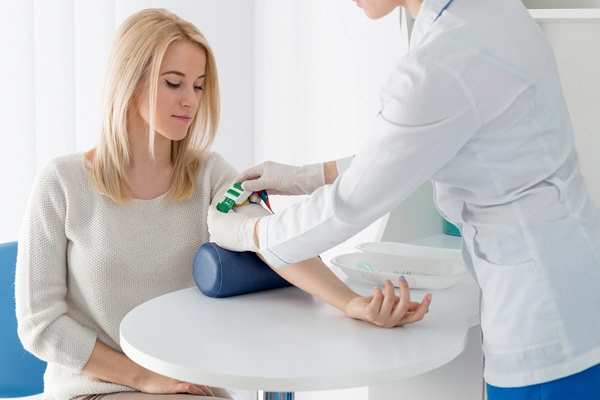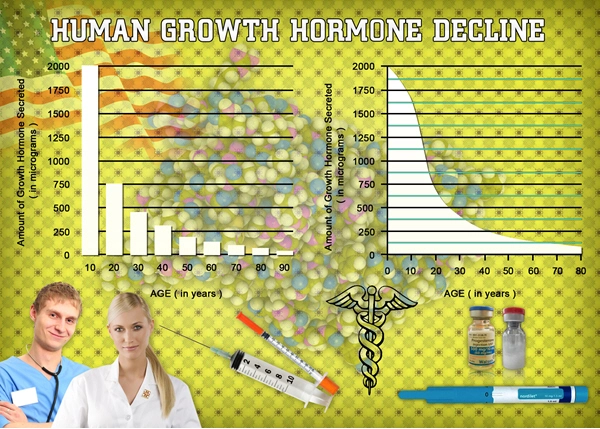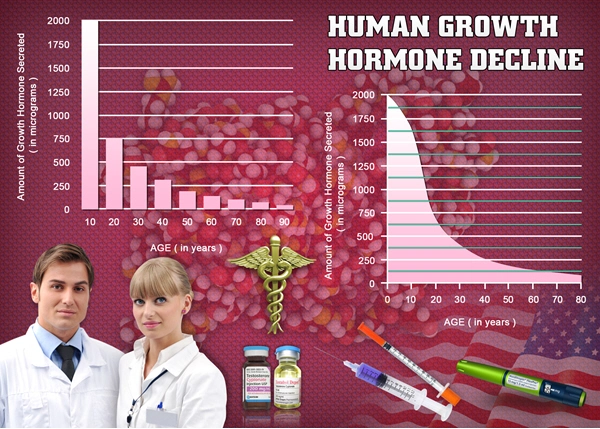Introduction
Late-onset hypogonadism (LOH), also known as age-related testosterone deficiency, is a condition that affects a significant number of American men as they age. Characterized by a decline in testosterone levels, LOH can lead to a variety of symptoms, including decreased libido, fatigue, and mood changes. Intriguingly, recent research has begun to illuminate a potential link between LOH and obesity, suggesting a bidirectional relationship that may exacerbate both conditions. This article delves into the complex interplay between LOH and obesity in American males and explores evidence-based strategies for weight management that can mitigate the effects of both conditions.
The Link Between Late-Onset Hypogonadism and Obesity
Emerging evidence suggests that the relationship between LOH and obesity is not merely coincidental but rather a dynamic interaction. Obesity, particularly visceral adiposity, has been shown to contribute to lower testosterone levels through mechanisms such as increased aromatization of testosterone to estradiol and inflammation-induced suppression of the hypothalamic-pituitary-gonadal axis. Conversely, low testosterone levels may promote fat accumulation and hinder muscle development, thus perpetuating a cycle of weight gain and further testosterone decline. This bidirectional relationship underscores the importance of addressing both LOH and obesity in American men to break this detrimental cycle.
Impact on Health and Quality of Life
The combined effects of LOH and obesity can have profound implications for the health and quality of life of American men. Obesity is a well-established risk factor for numerous chronic conditions, including type 2 diabetes, cardiovascular disease, and certain cancers. When coupled with the symptoms of LOH, such as reduced energy levels and diminished sexual function, the overall impact on an individual's well-being can be significant. Moreover, the psychological toll of struggling with both conditions can lead to decreased self-esteem and increased risk of depression, further complicating the management of these interrelated health issues.
Strategies for Weight Management in the Context of LOH
Effective weight management is crucial for American men grappling with the dual challenges of LOH and obesity. A multi-faceted approach that addresses both hormonal and lifestyle factors is essential for achieving sustainable weight loss and improving overall health.
1. Lifestyle Modifications
The cornerstone of any weight management strategy is a healthy diet and regular physical activity. American men should aim to adopt a balanced diet rich in whole foods, lean proteins, and healthy fats while minimizing processed foods and added sugars. Engaging in regular exercise, including both aerobic and resistance training, can help promote fat loss, build muscle mass, and potentially improve testosterone levels. Even modest weight loss can have significant benefits in terms of improving insulin sensitivity and reducing inflammation, which may positively impact testosterone levels.
2. Behavioral Interventions
Behavioral strategies such as setting realistic goals, self-monitoring, and seeking support from healthcare professionals or weight loss programs can enhance the success of weight management efforts. Cognitive-behavioral techniques can help American men overcome emotional eating, develop healthier coping mechanisms, and maintain motivation throughout their weight loss journey.
3. Pharmacological and Hormonal Therapies
In some cases, pharmacological interventions may be considered to support weight loss and address LOH. Medications such as testosterone replacement therapy (TRT) may be prescribed for men with clinically confirmed LOH, but careful monitoring is necessary to assess the benefits and potential risks. Additionally, weight loss medications may be considered for individuals who have not achieved sufficient weight loss through lifestyle modifications alone. However, these therapies should always be used in conjunction with lifestyle changes and under the guidance of a healthcare professional.
Conclusion
The link between late-onset hypogonadism and obesity in American men presents a complex challenge that requires a comprehensive approach to weight management. By understanding the bidirectional relationship between these conditions and implementing evidence-based strategies, American men can take proactive steps to improve their health and quality of life. Through a combination of lifestyle modifications, behavioral interventions, and, when appropriate, pharmacological therapies, it is possible to break the cycle of LOH and obesity and achieve lasting weight loss and hormonal balance.

- Exploring Alternative Therapies for Late-Onset Hypogonadism in Middle-Aged and Older Men [Last Updated On: February 25th, 2025] [Originally Added On: February 25th, 2025]
- Economic Impact of Late-Onset Hypogonadism on U.S. Men's Healthcare [Last Updated On: March 17th, 2025] [Originally Added On: March 17th, 2025]
- Late-Onset Hypogonadism: Impact on Muscle Mass and Management in Aging American Men [Last Updated On: March 18th, 2025] [Originally Added On: March 18th, 2025]
- Genetic Factors in Late-Onset Hypogonadism: Insights for American Males [Last Updated On: March 19th, 2025] [Originally Added On: March 19th, 2025]
- Exploring Late-Onset Hypogonadism: Current Treatments and Future Innovations [Last Updated On: March 20th, 2025] [Originally Added On: March 20th, 2025]
- Late-Onset Hypogonadism: Symptoms, Impacts, and Treatment in American Males [Last Updated On: March 20th, 2025] [Originally Added On: March 20th, 2025]
- Managing Late-Onset Hypogonadism: Symptoms, Lifestyle, and Medical Interventions for American Men [Last Updated On: March 20th, 2025] [Originally Added On: March 20th, 2025]
- Late-Onset Hypogonadism: Effects on Mood, Energy, and Management in American Men [Last Updated On: March 21st, 2025] [Originally Added On: March 21st, 2025]
- Late-Onset Hypogonadism: Understanding, Diagnosing, and Managing Low Testosterone in American Men [Last Updated On: March 21st, 2025] [Originally Added On: March 21st, 2025]
- Nutrition's Role in Managing Late-Onset Hypogonadism in American Males [Last Updated On: March 21st, 2025] [Originally Added On: March 21st, 2025]
- Late-Onset Hypogonadism: Impact on Fertility and Treatment Options for American Men [Last Updated On: March 22nd, 2025] [Originally Added On: March 22nd, 2025]
- Understanding Late-Onset Hypogonadism: Risks and Benefits of Testosterone Therapy [Last Updated On: March 22nd, 2025] [Originally Added On: March 22nd, 2025]
- Early Detection and Management of Late-Onset Hypogonadism in American Males [Last Updated On: March 22nd, 2025] [Originally Added On: March 22nd, 2025]
- Managing Late-Onset Hypogonadism in Aging American Men: Symptoms, Treatment, and Lifestyle [Last Updated On: March 22nd, 2025] [Originally Added On: March 22nd, 2025]
- Exercise as a Key Strategy for Managing Late-Onset Hypogonadism in American Males [Last Updated On: March 23rd, 2025] [Originally Added On: March 23rd, 2025]
- Late-Onset Hypogonadism: Benefits of Early Intervention in American Men [Last Updated On: March 23rd, 2025] [Originally Added On: March 23rd, 2025]
- Late-Onset Hypogonadism: Impacts on Cognitive Function and Therapeutic Approaches [Last Updated On: March 23rd, 2025] [Originally Added On: March 23rd, 2025]
- Managing Late-Onset Hypogonadism: Diagnosis, Treatment, and Lifestyle Strategies for Men Over 40 [Last Updated On: March 23rd, 2025] [Originally Added On: March 23rd, 2025]
- Exploring the Link Between Late-Onset Hypogonadism and Diabetes in American Males [Last Updated On: March 23rd, 2025] [Originally Added On: March 23rd, 2025]
- Managing Late-Onset Hypogonadism: Impacts, Diagnosis, and Treatment in American Men [Last Updated On: March 23rd, 2025] [Originally Added On: March 23rd, 2025]
- Dietary Strategies to Manage Late-Onset Hypogonadism in American Men [Last Updated On: March 23rd, 2025] [Originally Added On: March 23rd, 2025]
- Managing Late-Onset Hypogonadism: Symptoms, Treatment, and Societal Impact on American Men [Last Updated On: March 24th, 2025] [Originally Added On: March 24th, 2025]
- Emotional Journey of Late-Onset Hypogonadism in American Men: Coping and Support [Last Updated On: March 24th, 2025] [Originally Added On: March 24th, 2025]
- Managing Late-Onset Hypogonadism: Symptoms, Diagnosis, and Treatment Options for American Men [Last Updated On: March 24th, 2025] [Originally Added On: March 24th, 2025]
- Late-Onset Hypogonadism: Effects on Health and Importance of Early Intervention [Last Updated On: March 24th, 2025] [Originally Added On: March 24th, 2025]
- Late-Onset Hypogonadism: Enhancing Patient Education and Screening in the US [Last Updated On: March 24th, 2025] [Originally Added On: March 24th, 2025]
- Late-Onset Hypogonadism: Symptoms, Risks, and Management Strategies for Aging Men [Last Updated On: March 24th, 2025] [Originally Added On: March 24th, 2025]
- Late-Onset Hypogonadism: Prevalence, Stigma, and Treatment in American Men [Last Updated On: March 24th, 2025] [Originally Added On: March 24th, 2025]
- Managing Late-Onset Hypogonadism: Holistic Approaches for American Males [Last Updated On: March 24th, 2025] [Originally Added On: March 24th, 2025]
- Late-Onset Hypogonadism: Symptoms, HRT Benefits, and Safety in American Men [Last Updated On: March 25th, 2025] [Originally Added On: March 25th, 2025]
- Advocating for Better Late-Onset Hypogonadism Care: A Call to American Men [Last Updated On: March 25th, 2025] [Originally Added On: March 25th, 2025]
- Late-Onset Hypogonadism: Myths, Facts, and Management Strategies for American Men [Last Updated On: March 25th, 2025] [Originally Added On: March 25th, 2025]
- Late-Onset Hypogonadism: Impact on Sleep and Management Strategies for American Men [Last Updated On: March 25th, 2025] [Originally Added On: March 25th, 2025]
- Late-Onset Hypogonadism in American Males: Diagnosis, Management, and Multidisciplinary Care [Last Updated On: March 26th, 2025] [Originally Added On: March 26th, 2025]
- Stress and Late-Onset Hypogonadism: Impact on American Males' Hormonal Health [Last Updated On: March 26th, 2025] [Originally Added On: March 26th, 2025]
- Late-Onset Hypogonadism: Impacts on American Men's Careers and Workplace Strategies [Last Updated On: March 26th, 2025] [Originally Added On: March 26th, 2025]
- Late-Onset Hypogonadism in Aging American Men: Symptoms, Risks, and Management Strategies [Last Updated On: March 26th, 2025] [Originally Added On: March 26th, 2025]
- Late-Onset Hypogonadism in Aging American Men: Symptoms, Risks, and Management Strategies [Last Updated On: March 26th, 2025] [Originally Added On: March 26th, 2025]
- Late-Onset Hypogonadism: Impact on American Males and the Vital Role of Family Support [Last Updated On: March 26th, 2025] [Originally Added On: March 26th, 2025]
- Late-Onset Hypogonadism: Effects on American Men's Relationships and Management Strategies [Last Updated On: March 26th, 2025] [Originally Added On: March 26th, 2025]
- Financial Impact of Late-Onset Hypogonadism on American Men: Costs and Strategies [Last Updated On: March 27th, 2025] [Originally Added On: March 27th, 2025]
- Innovative Technologies Revolutionizing Late-Onset Hypogonadism Diagnosis in American Males [Last Updated On: March 27th, 2025] [Originally Added On: March 27th, 2025]
- Cultural Perceptions and Management of Late-Onset Hypogonadism in American Men [Last Updated On: March 27th, 2025] [Originally Added On: March 27th, 2025]
- Legal Aspects of Late-Onset Hypogonadism: Diagnosis, Treatment, and Rights in the U.S. [Last Updated On: March 27th, 2025] [Originally Added On: March 27th, 2025]
- Late-Onset Hypogonadism: Diagnosis, Treatments, and Lifestyle Management for American Men [Last Updated On: March 27th, 2025] [Originally Added On: March 27th, 2025]
- Diagnosing Late-Onset Hypogonadism: A Guide for American Males [Last Updated On: March 27th, 2025] [Originally Added On: March 27th, 2025]
- Managing Late-Onset Hypogonadism: Strategies for Maintaining Independence in American Men [Last Updated On: March 27th, 2025] [Originally Added On: March 27th, 2025]
- Late-Onset Hypogonadism in American Males: Prevalence, Monitoring, and Management Strategies [Last Updated On: March 28th, 2025] [Originally Added On: March 28th, 2025]
- Mental Health Professionals' Vital Role in Managing Late-Onset Hypogonadism in Aging Males [Last Updated On: March 28th, 2025] [Originally Added On: March 28th, 2025]
- Late-Onset Hypogonadism: Community Support and Management Strategies for Aging American Males [Last Updated On: March 28th, 2025] [Originally Added On: March 28th, 2025]
- Managing Late-Onset Hypogonadism in Aging American Men: Symptoms, Diagnosis, and Treatment [Last Updated On: March 29th, 2025] [Originally Added On: March 29th, 2025]
- Late-Onset Hypogonadism: Diagnosis Journey and Management for American Men [Last Updated On: March 29th, 2025] [Originally Added On: March 29th, 2025]
- Managing Late-Onset Hypogonadism: Diet, Exercise, Sleep, and Lifestyle Strategies for American Men [Last Updated On: April 1st, 2025] [Originally Added On: April 1st, 2025]
- Late-Onset Hypogonadism: Impact on Self-Esteem and Management Strategies for American Men [Last Updated On: April 1st, 2025] [Originally Added On: April 1st, 2025]
- Navigating Insurance Coverage for Late-Onset Hypogonadism Treatment in American Men [Last Updated On: April 2nd, 2025] [Originally Added On: April 2nd, 2025]
- Managing Late-Onset Hypogonadism: The Vital Role of Peer Support for American Males [Last Updated On: April 4th, 2025] [Originally Added On: April 4th, 2025]
- Research Advances in Late-Onset Hypogonadism: Diagnosis, Treatment, and Future Directions in the US [Last Updated On: April 6th, 2025] [Originally Added On: April 6th, 2025]
- Late-Onset Hypogonadism: Symptoms, Social Impact, and Management Strategies for American Men [Last Updated On: April 6th, 2025] [Originally Added On: April 6th, 2025]
- Managing Late-Onset Hypogonadism: Stress Reduction Strategies for American Men [Last Updated On: April 7th, 2025] [Originally Added On: April 7th, 2025]
- Patient Advocacy's Crucial Role in Managing Late-Onset Hypogonadism in American Men [Last Updated On: April 9th, 2025] [Originally Added On: April 9th, 2025]
- Late-Onset Hypogonadism: Symptoms, Diagnosis, and Management in American Males [Last Updated On: April 9th, 2025] [Originally Added On: April 9th, 2025]
- Managing Late-Onset Hypogonadism: A Holistic Approach for American Men's Mental Health [Last Updated On: April 9th, 2025] [Originally Added On: April 9th, 2025]
- Late-Onset Hypogonadism: Impact, Diagnosis, and Management in American Males [Last Updated On: April 11th, 2025] [Originally Added On: April 11th, 2025]
- Exploring the Emotional Impact of Late-Onset Hypogonadism in American Men [Last Updated On: April 11th, 2025] [Originally Added On: April 11th, 2025]
- Managing Late-Onset Hypogonadism: Symptoms, Diagnosis, and Treatment Options for American Men [Last Updated On: April 11th, 2025] [Originally Added On: April 11th, 2025]
- Understanding Late-Onset Hypogonadism: Symptoms, Detection, and Holistic Management in American Men [Last Updated On: April 12th, 2025] [Originally Added On: April 12th, 2025]
- Nutritionists' Role in Managing Late-Onset Hypogonadism in American Males [Last Updated On: April 12th, 2025] [Originally Added On: April 12th, 2025]
- Exercise as a Non-Pharmacological Approach to Managing Late-Onset Hypogonadism in American Men [Last Updated On: April 13th, 2025] [Originally Added On: April 13th, 2025]
- Endocrinologists' Vital Role in Managing Late-Onset Hypogonadism in American Men [Last Updated On: April 15th, 2025] [Originally Added On: April 15th, 2025]
- Late-Onset Hypogonadism: Impact on Sexual Function and Management Strategies in American Men [Last Updated On: April 15th, 2025] [Originally Added On: April 15th, 2025]
- Understanding and Managing Late-Onset Hypogonadism in American Males [Last Updated On: April 15th, 2025] [Originally Added On: April 15th, 2025]
- Understanding Late-Onset Hypogonadism: Symptoms, Diagnosis, and Treatment Advances [Last Updated On: April 16th, 2025] [Originally Added On: April 16th, 2025]
- Therapists' Vital Role in Managing Late-Onset Hypogonadism in Aging American Men [Last Updated On: April 17th, 2025] [Originally Added On: April 17th, 2025]
- Holistic Management of Late-Onset Hypogonadism in American Men [Last Updated On: April 17th, 2025] [Originally Added On: April 17th, 2025]
- Late-Onset Hypogonadism in American Men: Diagnosis, Treatment, and Lifestyle Management [Last Updated On: April 18th, 2025] [Originally Added On: April 18th, 2025]
- Late-Onset Hypogonadism: Impact and Management in American Men's Professional Lives [Last Updated On: April 19th, 2025] [Originally Added On: April 19th, 2025]
- Managing Late-Onset Hypogonadism: Lifestyle Strategies for American Men's Health [Last Updated On: April 20th, 2025] [Originally Added On: April 20th, 2025]
- Managing Late-Onset Hypogonadism: Leveraging Community Resources for American Men's Health [Last Updated On: April 20th, 2025] [Originally Added On: April 20th, 2025]
- Late-Onset Hypogonadism: Symptoms, Risks, and Management in American Men [Last Updated On: April 21st, 2025] [Originally Added On: April 21st, 2025]
- Diagnosing Late-Onset Hypogonadism in American Men: Symptoms, Challenges, and Strategies [Last Updated On: April 22nd, 2025] [Originally Added On: April 22nd, 2025]



List of USA state clinics - click a flag below for blood testing clinics.
Word Count: 649


















































